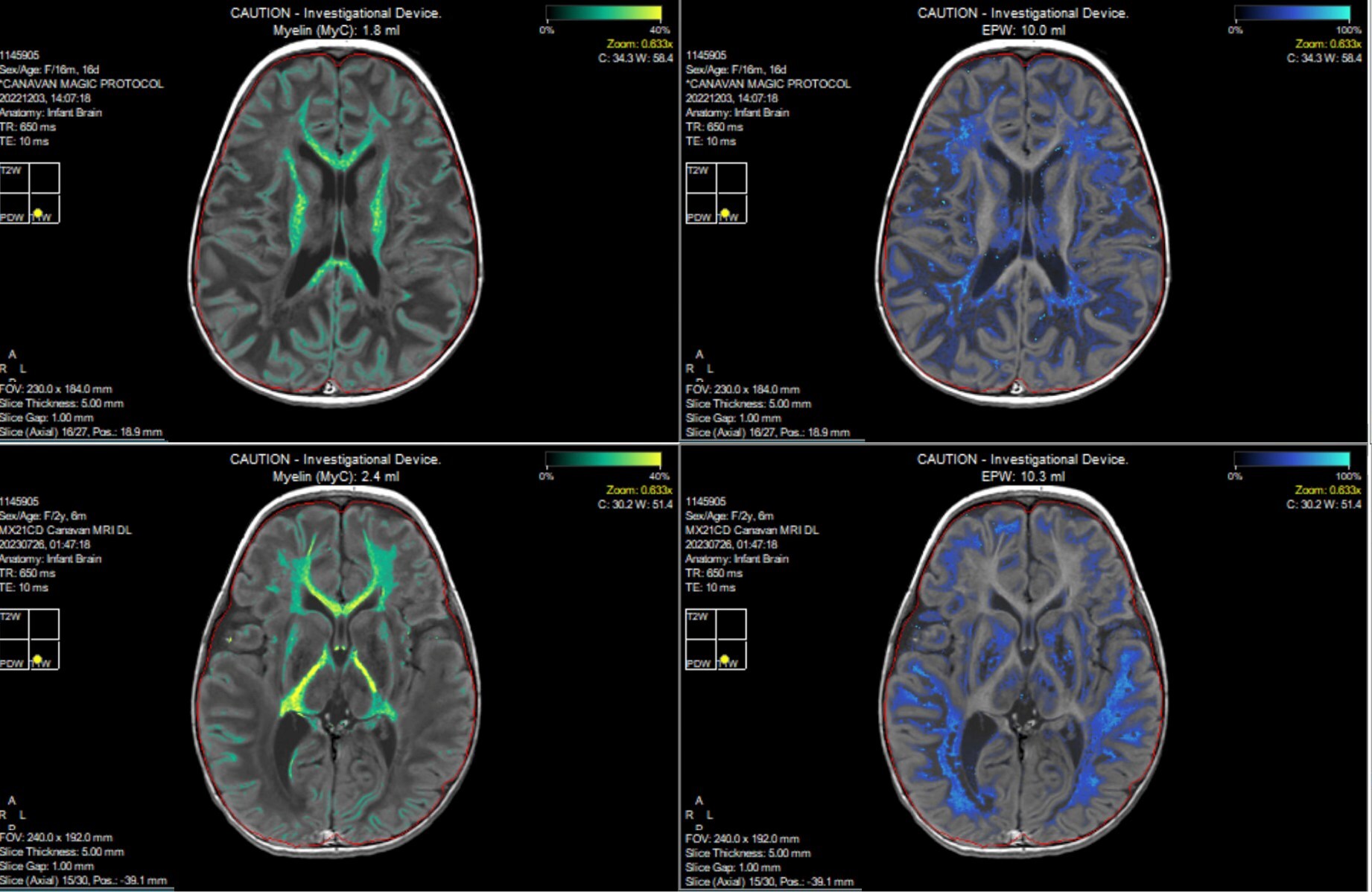Myrtelle Inc. has announced significant interim results from its Phase 1/2 clinical trial of the investigational gene therapy rAAV-Olig001-ASPA (MYR-101) for Canavan disease, following publication in Nature Medicine on September 16, 2025. This groundbreaking study reveals that the targeted oligodendrocyte gene therapy leads to decreased levels of N-acetylaspartate (NAA) and increased brain myelin volume, which are associated with promising functional improvements in children afflicted by this neurodegenerative disorder.
The publication, titled “Oligodendrocyte-targeted adeno-associated virus gene therapy for Canavan disease in children: a phase 1/2 trial,” highlights a major advancement in treatment options for Canavan disease. This condition is caused by mutations in the ASPA gene, impairing the production of the enzyme aspartoacylase, which is essential for myelin production. The therapy represents the first recombinant AAV gene therapy specifically designed to target oligodendrocytes, the brain cells responsible for myelin synthesis.
Adrian Stecyk, Chief Executive Officer of Myrtelle, stated, “The reductions in CSF NAA levels, gains in myelin volume, and functional improvements in treated patients mark a compelling step forward for patients who currently have no approved treatment options.” He emphasized that the publication underscores the potential of rAAV-Olig001-ASPA as a disease-modifying therapy for Canavan disease.
Clinical Trial Insights
Myrtelle’s First-in-Human (FIH) trial involved eight children diagnosed with typical Canavan disease, who were monitored for up to two years post-treatment. The interim results indicate that MYR-101 therapy is well-tolerated, with no serious adverse events linked directly to the gene therapy.
Key findings include a significant reduction in NAA levels in cerebrospinal fluid (CSF), providing early evidence of therapeutic efficacy. Additionally, the use of Synthetic MRI (SyMRI) demonstrated significant increases in brain myelin volume, indicating new myelination. Participants exhibited developmental improvements compared to historical controls, as assessed using the Mullen Scales of Early Learning (MSEL). Notably, all participants improved in at least two MSEL domains, with many showing improvements in three or more domains, reflecting broad functional gains.
The results support the potential of MYR-101 as a disease-modifying therapy, with ongoing follow-up assessments focusing on long-term outcomes and the durability of the treatment response.
Regulatory Support and Designations
Recently, the U.S. Food and Drug Administration (FDA) selected rAAV-Olig001-ASPA for inclusion in the Support for Clinical Trials Advancing Rare Disease Therapeutics (START) pilot program. This program aims to provide enhanced regulatory support to expedite the development of promising therapies for rare diseases. MYR-101 is one of only four gene therapies regulated by the Center for Biologics Evaluation and Research (CBER) to receive this designation.
In addition to START, the therapy has been granted several other regulatory designations, including Regenerative Medicine Advanced Therapy (RMAT), Orphan Drug, Rare Pediatric Disease, and Fast Track designations from the FDA. It also holds Orphan Drug Designation and Advanced Therapy Medicinal Product (ATMP) classification from the European Medicines Agency (EMA), as well as the Innovative Licensing and Access Pathway (ILAP) designation from the UK Medicines and Healthcare products Regulatory Agency (MHRA).
About Myrtelle Inc.
Myrtelle Inc. is at the forefront of gene therapy development, focusing on innovative treatments for neurodegenerative diseases. The company possesses a proprietary platform, intellectual property, and a portfolio of programs dedicated to advancing gene therapy approaches. Myrtelle has established an exclusive worldwide licensing agreement with Pfizer Inc. for its Canavan disease program.
Canavan disease is a severe genetic disorder that typically manifests in infancy due to mutations in the ASPA gene, preventing the normal expression of aspartoacylase. Children affected by this condition often display symptoms such as poor head control, large head size, and delays in motor milestones. As the disease progresses, more severe complications, including seizures and muscle deterioration, typically arise, with most children facing life-threatening challenges by approximately ten years of age. Currently, there are no approved cures for Canavan disease, and patients primarily receive palliative care.
For additional details on Myrtelle’s clinical trial for Canavan disease, visit https://clinicaltrials.gov/ under the identifier NCT04833907 or contact [email protected].
This article contains forward-looking statements, which may involve risks and uncertainties that could cause actual results to differ materially from expectations.
